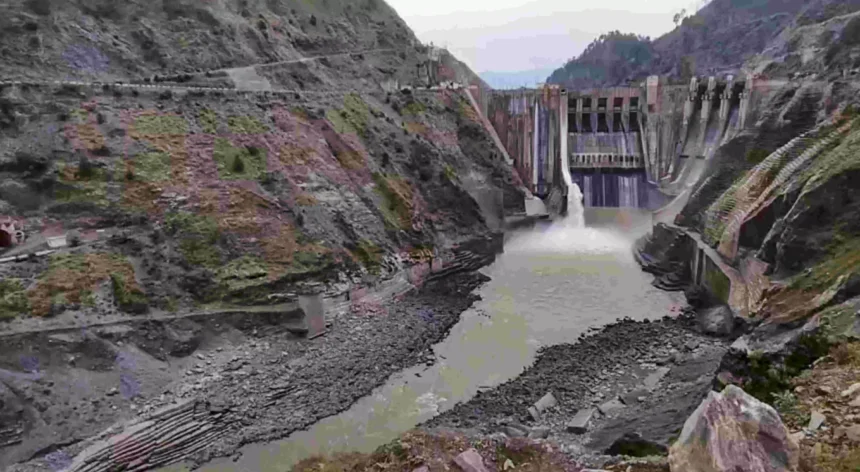All Gates of Salal Dam Closed, Water Levels Dip in Reasi Amid Tensions with Pakistan
Reasi, May 1: All gates of the Salal Dam on the Chenab River were shut on Monday, leading to a significant drop in water levels across the Reasi district. Meanwhile, water was seen flowing from the Baglihar Hydroelectric Project on the Chenab in Ramban.
The move is being seen as part of India’s strong response following the recent Pahalgam terror attack that killed 26 people. BJP IT Cell chief Amit Malviya praised Prime Minister Narendra Modi on social media platform X, saying, “It takes political will to make tough decisions in India’s interest. This is the muscular Modi Doctrine—firm and unwavering in its fight against terrorism. Water and blood cannot flow together.”
Locals in Reasi supported the government’s decision. “We are happy that the water flow to Pakistan has been halted. After what happened in Pahalgam, they deserve this response,” said Dinesh, a local resident. Another citizen added, “This is a major achievement and a befitting reply. We stand with the government.”
The Chenab River had earlier seen a rise in water levels on May 2 due to heavy rainfall in the Akhnoor region of Jammu and Kashmir.
Uttarakhand Chief Minister Pushkar Singh Dhami also welcomed the Centre’s decision to suspend provisions of the Indus Waters Treaty. Calling it a bold move under Prime Minister Modi’s leadership, Dhami said, “Blood and water cannot flow together. Today’s India knows how to be both a friend and a rival when necessary.”
The Indus Waters Treaty, signed in 1960 after years of negotiation and with the World Bank’s mediation, remains one of the most enduring international water agreements. It assigns the eastern rivers (Ravi, Beas, Sutlej) to India and the western rivers (Indus, Jhelum, Chenab) to Pakistan, with limited usage rights for both nations across the system. India currently accesses about 20% of the Indus River System, while Pakistan receives 80%.
India’s firm actions post-Pahalgam attack are seen as part of a broader strategy to pressurize Pakistan over its support for cross-border terrorism, including through suspending key provisions of the treaty.

